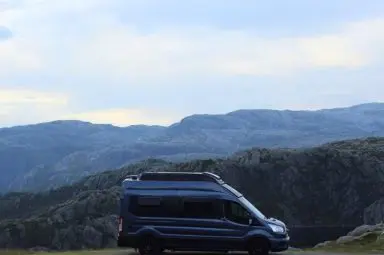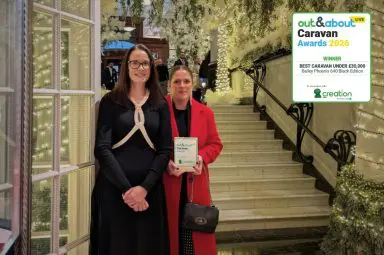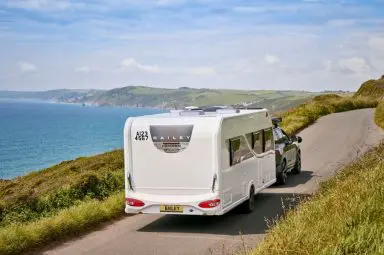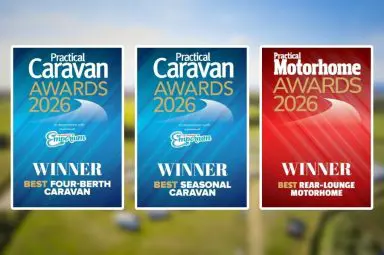Are Caravan Holidays the Green Choice?
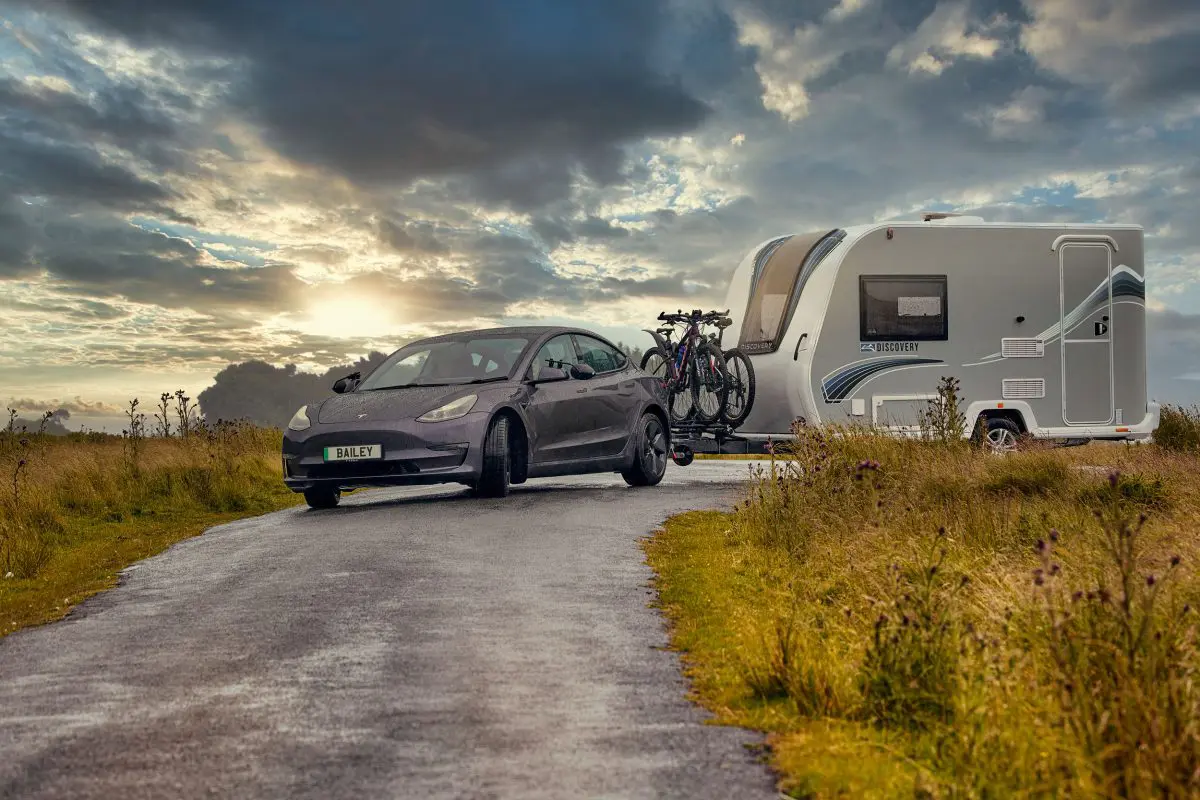
However, it is possible to enjoy a holiday that allows you to explore the UK and beyond while being mindful of your carbon footprint. Caravan holidays might be the answer, but are they indeed the greener choice?
Carbon Footprint - caravan holidays versus air travel
When comparing different travel options, caravan holidays have a lower carbon footprint than air travel, but by how much? Having explored various parts of Europe by caravan, I randomly chose a destination and attempted to calculate the C02 for each holiday type.
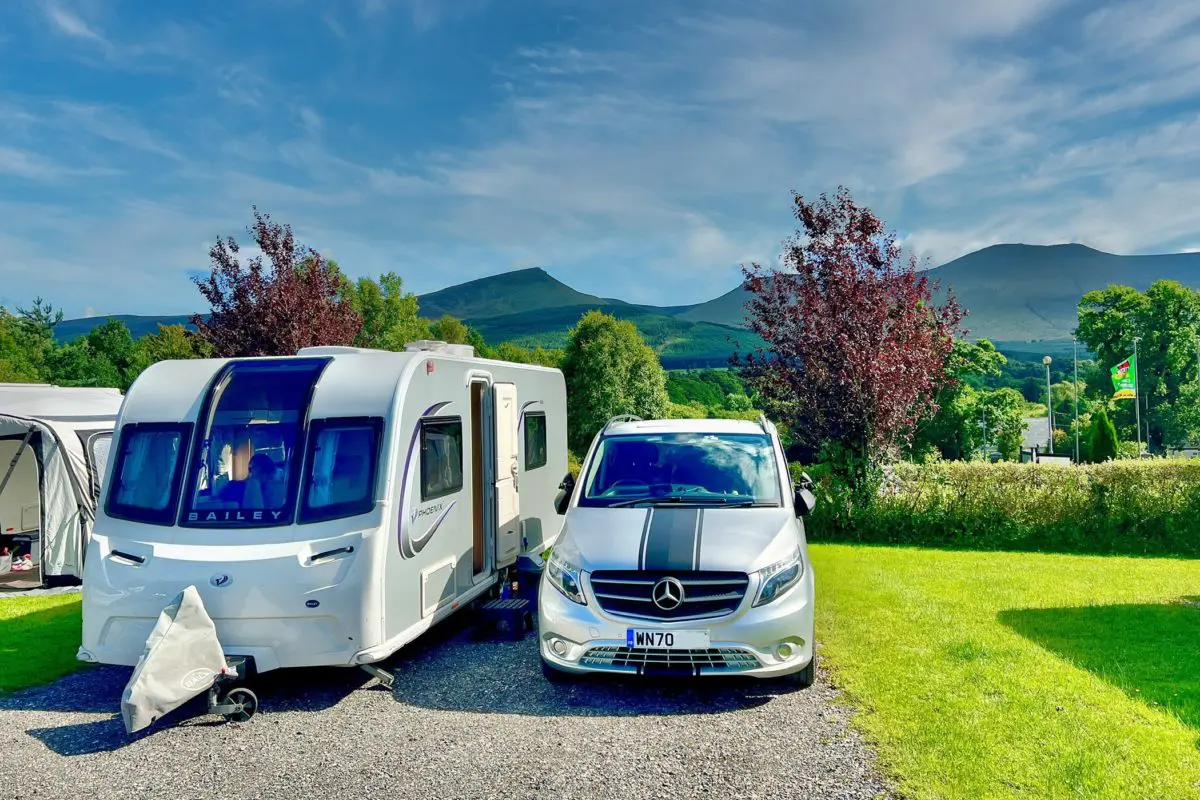
I must stress that I am unscientific by nature and have little more than a CSE in Physics to back up any data produced. The statements, facts, and figures used have been plucked from the web, and although the websites listed came highly recommended, I haven’t scrutinised their data. The following few paragraphs are a guide rather than a hard and fast scientific study.
Using my car—a 2020 Mercedes Vito 119 diesel—as an example, it produces 188 grams of C02 per kilometre. Adjusting the MPG from solo (40mph) to towing (25mpg) gives a car and caravan figure of 300g/km.
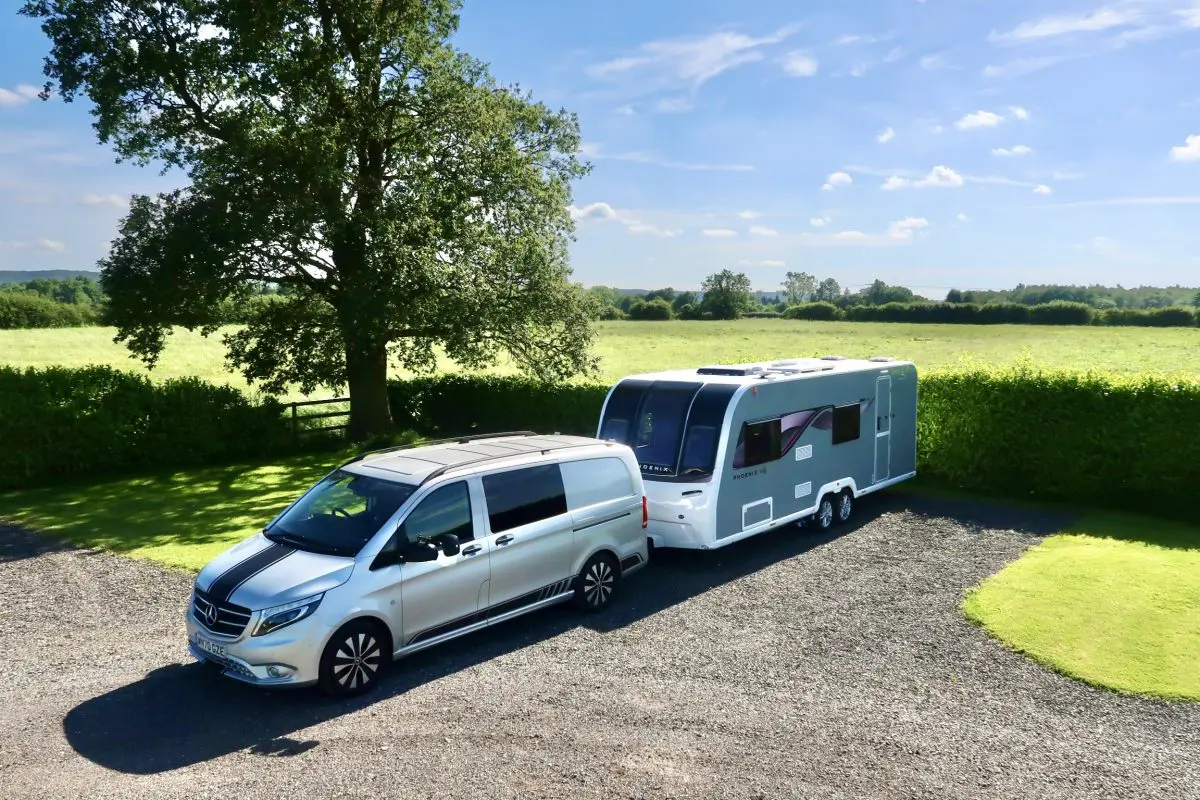
Bordeaux is a caravanning mecca, so we’ll use it as an example.
Caravan holiday
- Mileage (round trip): 1850km
- C02 while towing: 550kg @ 25mpg
- C02 for Dover to Calais ferry: 7.8kg (figures courtesy of directferries.co.uk)
- Caravan C02 per night: 3.78kg (figures courtesy of campspace.com). 10x nights = 37.8kg
- Total C02: 561.58kg. Family of 4: 140.39kg per person. Couple: 280.79kg per person
Air travel & hotel
- Mileage (round trip): 1410km
- C02 while flying: 300kg per person (figures courtesy of flightfree.org)
- Hotel C02 per night: 7.7kg (figures courtesy of nosgestesclimat.fr). 10x nights = 77kg
- Total C02: 377kg. Family of 4: 319.25kg per person. Couple: 338kg per person
When travelling as a family of four, caravan holidays are 56% greener. Couples will be 17% greener when exploring by caravan. However, modern insulation, efficient heating, and solar panels mean we can be even more environmentally friendly with a few minor changes.
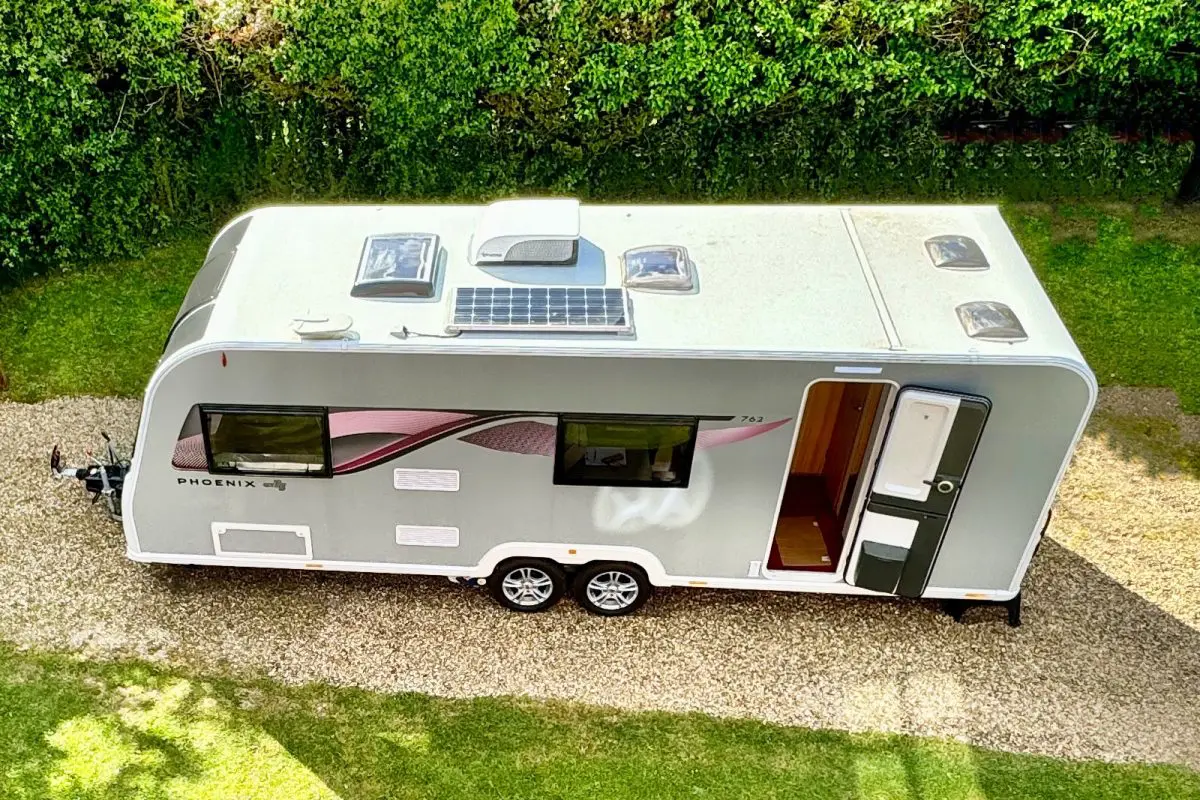
Can caravan holidays be even greener?
The per-night figures above are an average, but we caravanners can easily save more C02. As someone unaccustomed to unnecessary spending, I admit that saving C02 also saves money.
Caravans typically require less energy than hotels, thanks in part to a compact living space that requires less fuel to heat. I’ve taken part in various cold chamber tests and real-life trips that test the efficiency of Bailey’s Alu-Tech bodyshell and heating systems from Truma and Alde, much of which feeds into the design process.
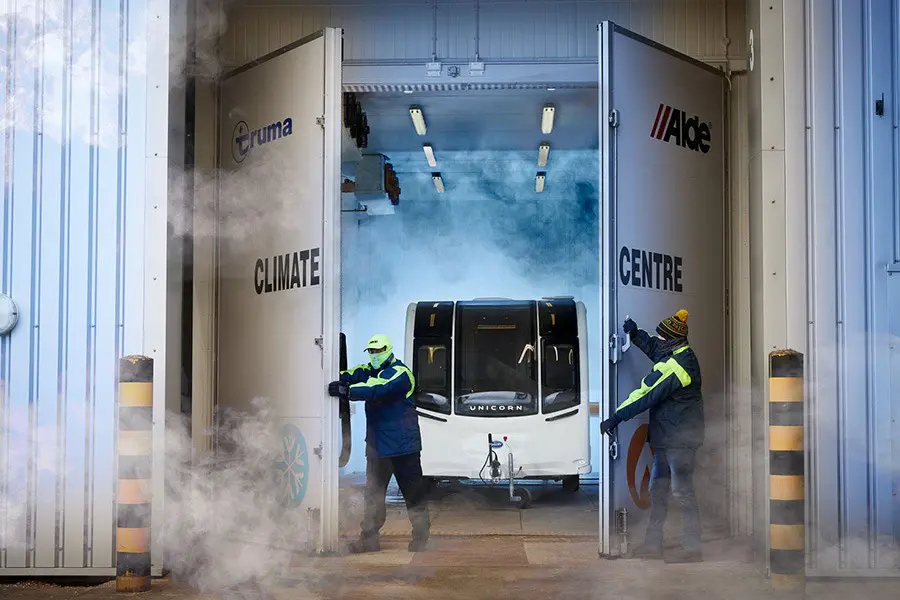
Caravan heating uses electricity, gas, or a combination of both, but green energy sources can offset any fossil fuel use. Solar panels work incredibly well, and combined with a decent leisure battery, they are the perfect caravanning partners.
As mentioned, self-reliance can save money. For example, we tried to book the ever-popular Trewethett Farm, and it looked as though the site was full—until we spotted an eco-pitch without electric hook-up. We enjoyed clifftop views while reducing our carbon footprint and saved £10 per night, too.
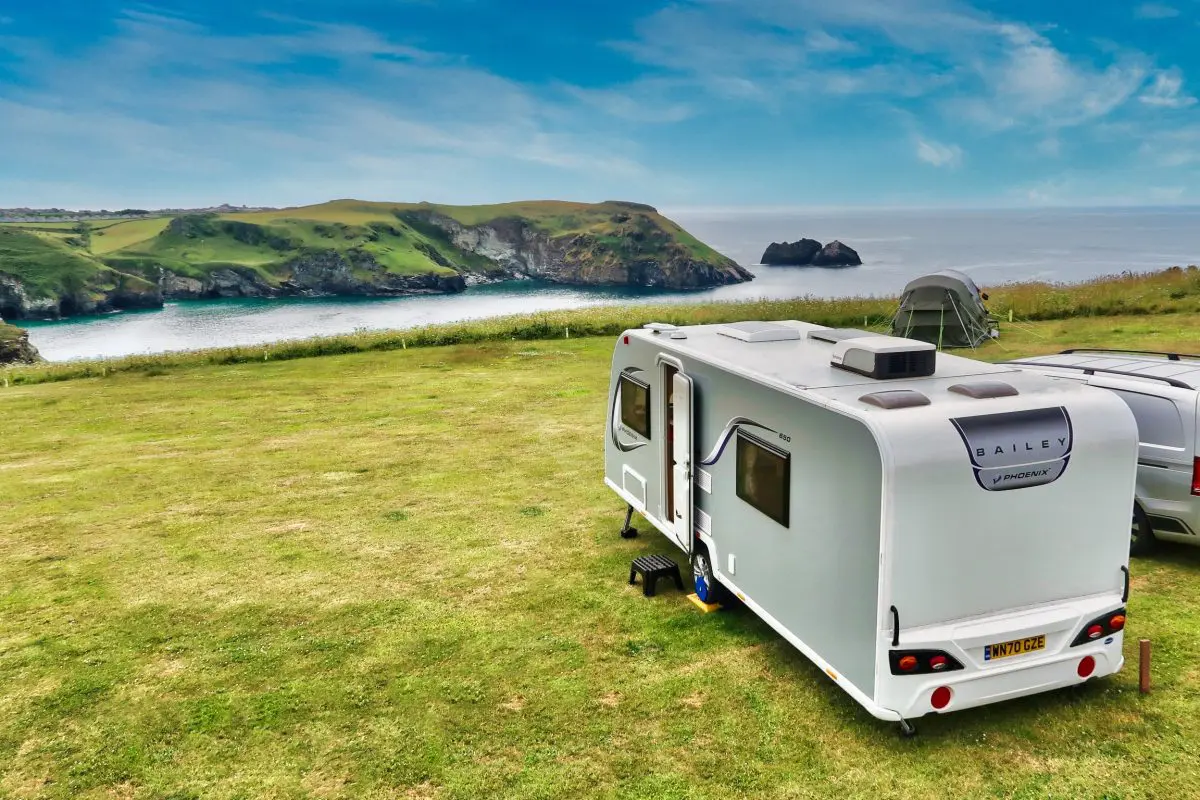
Reduced waste
Caravanners often generate less waste compared to traditional tourists. Using eco-friendly products can also reduce harmful plastic and non-biodegradable waste. For instance, switching to biodegradable products and reusable kitchen items can make a big difference. Moreover, precise meal planning can prevent food waste during your trip. By bringing only what you need and using up perishables before they spoil, you help to minimise the amount of waste generated.
Pack light and embrace efficiency
Packing light is one of the easiest ways to reduce the energy needed to tow your caravan. The heavier your caravan, the more fuel it will consume. By packing efficiently and minimising unnecessary items, you not only reduce weight but also decrease waste and clutter. Checking tyre pressures regularly can lessen the rolling resistance, aiding MPG.
Consider bringing reusable items like water bottles and containers to cut down on single-use plastics. Opt for compact, energy-efficient gadgets that are better for the environment. These small changes can significantly impact your overall holiday experience and the planet.

Choose Sustainable Activities and Attractions
Your choice of activities and attractions can significantly influence the environmental impact of your holiday. Visiting local farms and markets supports sustainable practices and reduces the carbon footprint associated with transporting goods.
Nature trails and cycle paths are popular with caravanners. They offer low-impact recreational options and allow you to enjoy the beauty of the landscape in an environmentally friendly way. Exploring wildlife conservation areas can provide educational and sustainable experiences, helping you appreciate the importance of protecting our natural world.
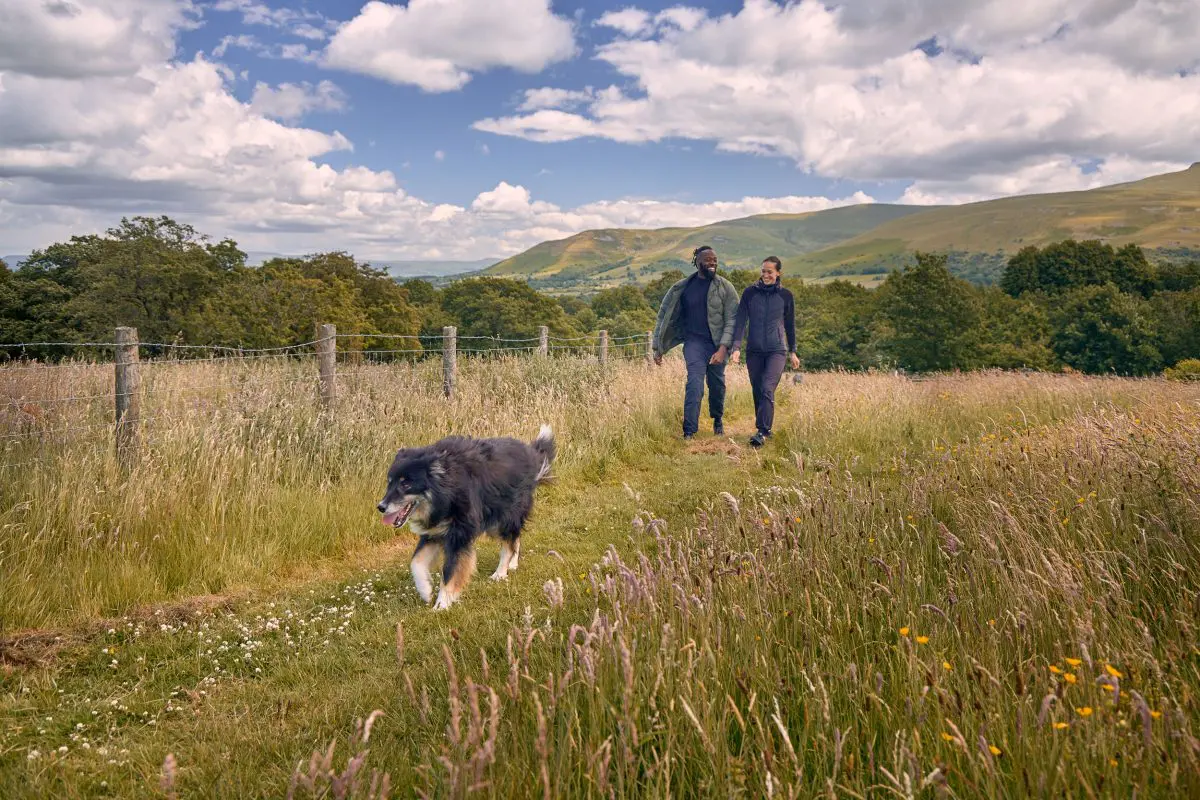
Eco-Friendly Caravan Parks
Many campsites have embraced sustainability, with a significant percentage offering recycling facilities for guests. Renewable energy helps campsites further reduce your stay’s carbon footprint. Parks with environmental certifications often comply with higher eco-standards, ensuring better protection of natural resources.
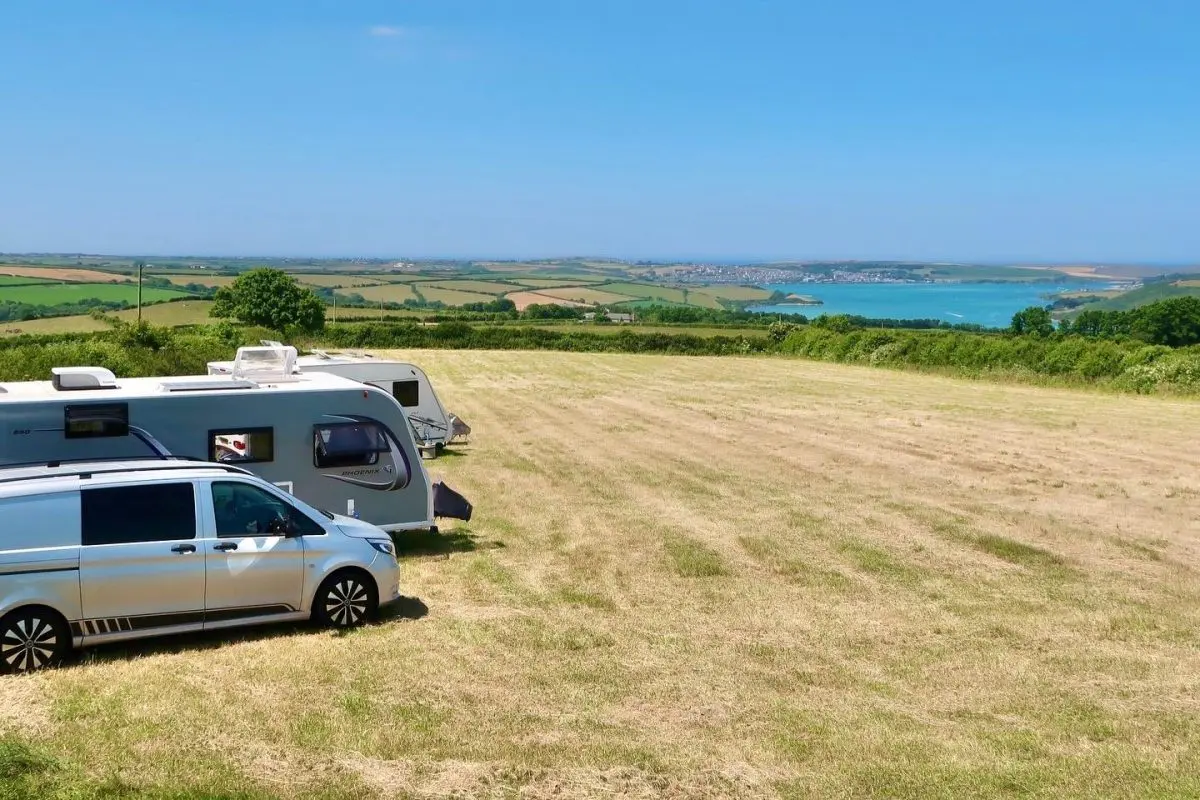
Water Conservation Tips
Using water from a 40-litre Aquaroll makes us water efficient, and this is further enhanced thanks to the caravan. A 10-litre water heater makes us adept at water-suds-water showers, while Ecocamel shower heads mix air with water to maximise water pressure while using as little as possible.
Limiting water use may seem daft after one of the wettest winters on record, but it’s a precious resource.
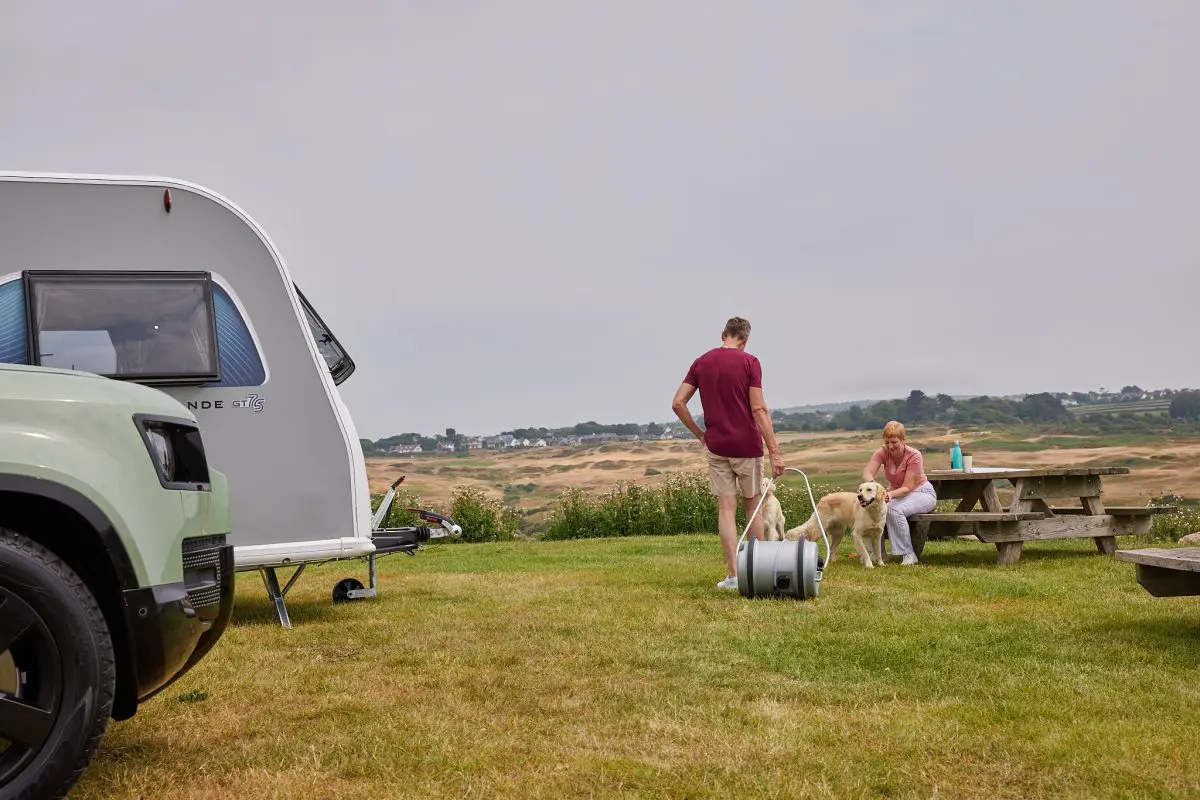
Supporting Local Businesses
Some time ago, I wrote about the importance of ‘shopping small’ in The Camping and Caravanning Magazine. Purchasing items from independent retailers and local markets reduces transport emissions and supports the local economy. Dining at local eateries gives you a taste of local cuisine and benefits the community. Shopping at a large online retailer is unlikely to affect their bottom line. However, it does make a huge difference to local businesses.
Summary
Caravan holidays offer many benefits for those seeking a greener way to travel. From lower carbon emissions to reduced waste generation and support for local communities, caravanning can significantly lessen your environmental footprint. By adopting sustainable practices and choosing eco-friendly caravan parks, you can make a positive impact while enjoying your holiday.
Latest news & events
See all news & eventsSwindon, Oxford & Reading Caravan & Motorhome Group January Promotional Event
Campbells Caravans and Motorhomes Winter Weekend Showcase
WATKIN LANE, LOSTOCK HALL, PRESTON, LANCASHIRE
